What Do Parrots Eat? Ensuring your parrot’s diet is diverse and nutritious is essential for their health and well-being. Parrots are omnivores, meaning they eat a variety of foods, including fruits, vegetables, seeds, nuts, and even some insects. A balanced diet for a pet parrot typically consists of high-quality commercial pellet or seed mixes supplemented with fresh fruits and vegetables. It’s crucial to provide a wide range of foods to meet their nutritional needs and prevent boredom.
In addition to commercial mixes, offer your parrot a variety of fresh produce such as apples, carrots, leafy greens, and bell peppers. Avoid feeding them avocado, chocolate, caffeine, alcohol, and excessively salty or sugary foods, as these can be toxic to birds. Providing clean, fresh water is also vital for hydration and overall health. Consulting with a veterinarian or avian specialist can help you tailor a diet plan suitable for your parrot’s species and individual needs.
What Do Parrots Eat?
Parrots are fascinating and colorful birds cherished for their intelligence, sociability, and charming personalities. Providing proper nutrition is essential for ensuring the health and well-being of these beloved avian companions. In this comprehensive guide, we’ll delve into the dietary needs of parrots, offering valuable insights into what they should eat for optimal health and vitality.
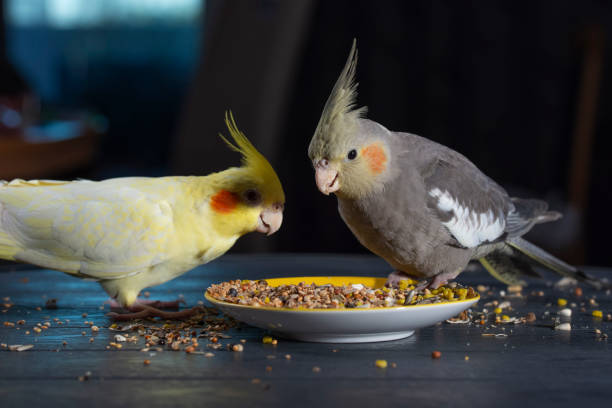
Understanding Parrot Nutrition
Parrots are omnivorous creatures, meaning they consume a diverse range of foods, including fruits, vegetables, seeds, nuts, and occasionally, insects. A balanced diet is crucial to meet their nutritional requirements and support their overall health. While commercial pellet or seed mixes serve as a staple in many parrot diets, it’s equally important to supplement with fresh, whole foods to provide essential vitamins, minerals, and antioxidants.
The Basics of a Parrot Diet
A well-rounded parrot diet typically consists of a high-quality commercial pellet or seed mix as the foundation. Look for products specifically formulated for parrots to ensure they receive the necessary nutrients. Additionally, fresh fruits and vegetables should constitute a significant portion of their daily intake. Offer a variety of options such as apples, bananas, oranges, carrots, broccoli, spinach, and bell peppers to promote dietary diversity and enrichment.
Avoid Toxic Foods
While many human foods are safe for parrots, some can be harmful or even toxic to them. It’s essential to avoid feeding your parrot foods such as avocado, chocolate, caffeine, alcohol, onions, garlic, and excessively salty or sugary treats. These items can cause digestive issues, toxicity, or other health problems in parrots. Familiarize yourself with safe and unsafe foods to ensure the well-being of your feathered friend.
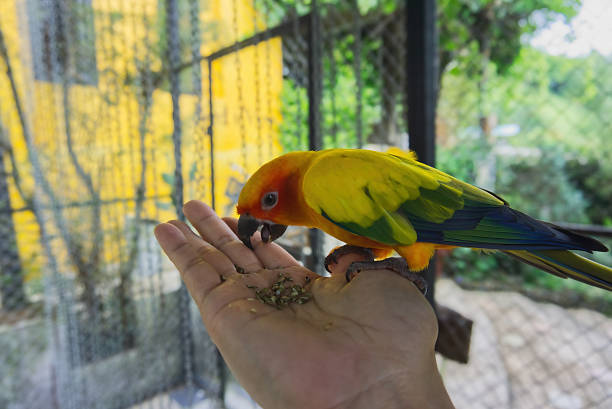
Supplementing with Healthy Treats
In addition to their regular diet, parrots enjoy occasional treats as rewards or for enrichment. Offer small portions of healthy treats such as nuts (in moderation), whole grains, cooked pasta or rice, and natural yogurt. These treats should complement their primary diet and not exceed more than 10% of their total daily intake. Avoid offering sugary or fatty treats that provide little nutritional value and can lead to obesity or other health issues.
Hydration
Proper hydration is essential for parrot health, so always ensure fresh, clean water is readily available. Change the water in their bowl daily to prevent bacterial growth and encourage regular hydration. Some parrots enjoy bathing, which helps keep their feathers clean and healthy. Providing a shallow dish of water or misting them with a spray bottle can simulate natural bathing behavior and contribute to their well-being.
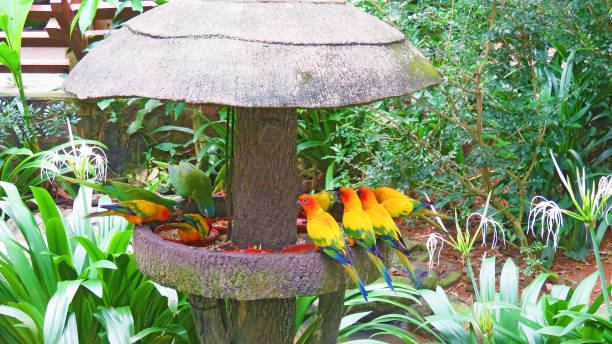
Consulting with a Veterinarian
If you’re uncertain about your parrot’s dietary needs or have concerns about their health, it’s advisable to consult with a veterinarian specializing in avian medicine. They can offer personalized recommendations based on your parrot’s species, age, health status, and individual preferences. Regular wellness check-ups are also essential for monitoring your parrot’s overall health and detecting any potential issues early on.
Conclusion
Understanding what parrots eat is essential for providing them with a balanced and nutritious diet that supports their health and vitality. By offering a variety of foods, avoiding toxic items, and ensuring proper hydration, you can help your feathered companion thrive in your care. Remember to consult with a veterinarian for personalized dietary recommendations and prioritize your parrot’s well-being above all else.
What do parrots eat in the wild?
In the wild, parrots have a varied diet that largely depends on their species, habitat, and seasonal availability of food. Generally, wild parrots consume a diverse range of foods, including fruits, seeds, nuts, berries, flowers, buds, insects, and even small vertebrates like lizards and small mammals.
Fruits and seeds are often primary components of a wild parrot’s diet, with different species favoring specific types based on their natural environment. They may feed on a variety of fruits such as figs, papayas, berries, and palm fruits, as well as seeds from grasses, trees, and shrubs.
In addition to fruits and seeds, wild parrots also forage for nuts, including almonds, Brazil nuts, and pine nuts, which provide essential fats and nutrients. Some species have specialized beaks adapted for cracking open tough nut shells to access the nutritious kernels inside.
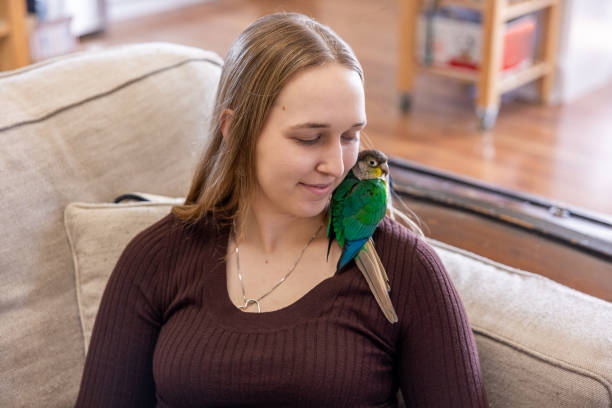
Insects and other small invertebrates are another important source of protein for many parrot species, especially during the breeding season when they require extra energy for nesting and raising young. Parrots may hunt for insects such as ants, termites, caterpillars, and beetles, supplementing their diet with valuable protein and nutrients.
Overall, the diet of wild parrots is diverse and varied, reflecting their adaptability to different environments and their ability to exploit a wide range of food sources for survival.
What do parrots eat minecraft?
In the game Minecraft, parrots have a specific diet that consists of seeds. Players can feed parrots seeds like wheat, melon, pumpkin, and beetroot found in Minecraft. To feed, hold seeds and right-click on the parrot. The parrot enters love mode if untamed or breeds if already tamed. Also, parrots can be attracted and tamed by seeds, becoming pets that perch on players’ shoulders.
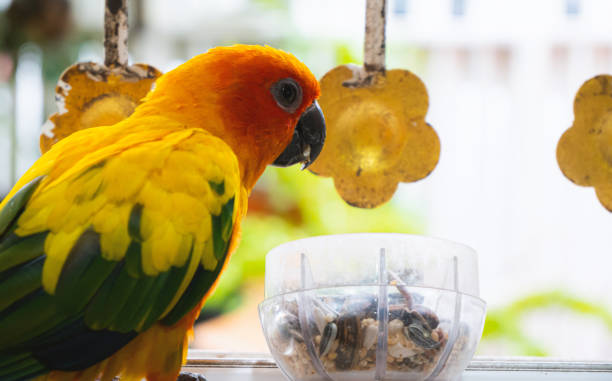
Which Nutrients to Include in Your Parrot’s Diet
Ensuring your parrot’s diet is balanced and nutritious is crucial for their health and well-being. Here are some essential nutrients to include:
Protein for Parrot’s Diet
Parrots require protein for muscle development and overall health. Good sources of protein include lean meats like chicken, turkey, and fish. You can also offer cooked eggs as a protein-rich treat for your parrot. Incorporating hydration and fiber into your parrot’s diet not only supports digestion but also enhances overall well-being. For example, a hydrated parrot will have brighter feathers and more energy, while a fiber-rich diet ensures a healthy gut. Always monitor your parrot’s water intake and adjust their diet to include fiber-rich foods for optimal health.
Vitamins and Minerals
Provide a variety of fresh fruits and vegetables to supply essential vitamins and minerals. Dark, leafy greens like kale and spinach are rich in vitamins A, C, and K, while fruits such as apples, oranges, and berries offer additional nutrients and antioxidants. By incorporating a variety of fresh, nutrient-dense foods, you can provide your parrot with the vitamins and minerals it needs to thrive. Always consult an avian vet to tailor the diet to your parrot’s specific requirements, ensuring a long, healthy life.
Calcium for Parrot’s Diet
Calcium is essential for maintaining strong bones and eggshell formation in breeding females. Offer calcium-rich foods like low-fat dairy products (such as yogurt and cheese), almonds, and fortified foods. Cuttlebones and mineral blocks are also excellent sources of calcium for parrots.
Healthy Fats
Incorporate healthy fats into your parrot’s diet to support skin and feather health. Offer foods like nuts (in moderation), seeds (such as sunflower and pumpkin seeds), and avocados. However, be cautious with fatty foods and feed them sparingly to prevent weight gain.
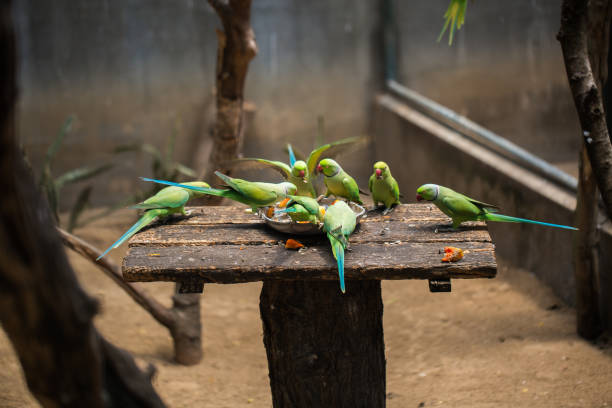
Carbohydrates
Carbohydrates provide energy for your parrot’s daily activities. Offer whole grains like brown rice, quinoa, and whole wheat bread as part of their diet. Avoid sugary or processed foods, as they offer little nutritional value and can lead to health issues.
Water for Parrot’s Diet
Ensure your parrot has access to clean, fresh water at all times. Hydration is essential for proper digestion, nutrient absorption, and overall health. Change the water daily to prevent bacterial growth and contamination.
By including these essential nutrients in your parrot’s diet, you can help promote their health, vitality, and longevity. It’s essential to offer a diverse range of foods to ensure they receive all the necessary nutrients for optimal well-being. Additionally, consult with a veterinarian or avian nutritionist for personalized dietary recommendations based on your parrot’s species, age, and health status.
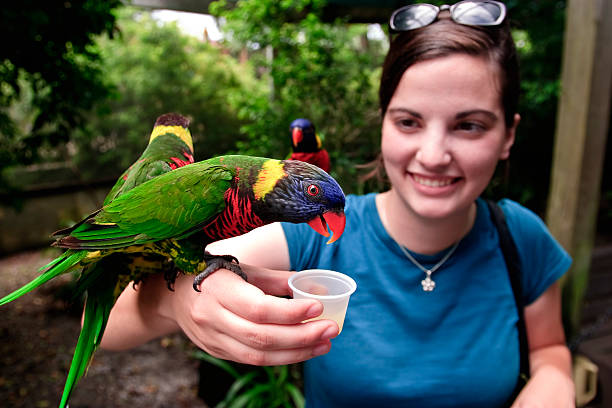
Related Post : Long Hair German Shepherd: Facts and Advantages Explained
FAQs – Answering Top Parrot Diet Questions
Q: Can parrots eat peanuts?
A: Yes, but avoid raw peanuts (aflatoxin risk). Opt for unsalted, shelled varieties.
Q: How often should I feed my parrot?
A: Twice daily, with snacks for foraging.
Q: Are pellets better than seeds?
A: Pellets offer balanced nutrition but should not exceed 50% of the diet.
Q: Can parrots eat dairy products?
A: No, parrots are lactose intolerant and cannot digest dairy products. Feeding them cheese, milk, or yogurt can lead to digestive issues like diarrhea.
Q: How often should I offer fruits to my parrot?
A: Fruits should be given in moderation, 2-3 times a week, as they are high in natural sugars. Focus on low-sugar options like berries and melons.
Q: Are nuts safe for all parrot species?
A: While nuts are a great source of healthy fats, they should be given sparingly due to their high-calorie content. Avoid salted or flavored nuts, as additives can be harmful.
Q: Can I feed my parrot human food?
A: Some human foods, like cooked rice, pasta, and vegetables, are safe in moderation. However, avoid processed, salty, or sugary foods, as they can harm your parrot’s health.
Q: How do I know if my parrot is getting the right nutrients?
A: Signs of a balanced diet include bright feathers, high energy levels, and regular bowel movements. If you notice dull feathers, lethargy, or weight changes, consult an avian vet to adjust their diet.
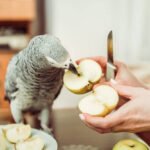
1 thought on “What Do Parrots Eat? The 2025 Guide to a Balanced Parrot Diet”